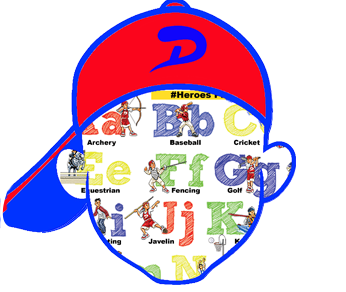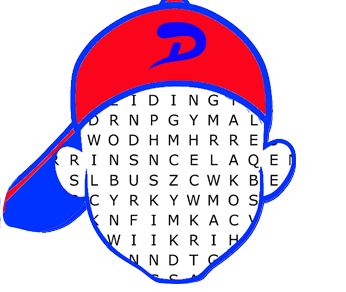Importance of Mental Stimulation during Early Childhood
Young children’s minds bloom like spring-kissed gardens. Every sound, color, and movement paints cognition’s canvas. Flexible and fascinating children’s minds desire for exploration with every breath and interested gaze. Mental stimulation during these precious years nurtures reason and creativity like golden sunshine. Challenges, storytelling, and organized play help young brains grow like vines towards comprehension.
Puzzles, patterns, and intentional contemplation stimulate intelligence like dew on blossoms. Activity creates neural circuits that control language, reasoning, emotion, and social grace. Mental stimulation reflects reality, where ideas fly on possibilities. This magical era requires colorful, diverse stimulation led by caring hands. Make every riddle and inquiry a gentle invitation to imagine and learn.
Rise of Digital Tools for Learning and Entertainment
In this bright era of innovation, digital technologies shine like stars in childhood. They act with inquiry, combining pleasure and purpose to create joyful learning paths. Tablets and applications now hold wisdom for young fingertips, guiding them to boundless wonder. Screens now teach, fascinate, and enlighten brains with glittering insight. With a swipe, tales, riddles, and adventures come alive in pixelated color.

These wonderful portals allow safe explorations of logic, language, and imagination. Educational games now incorporate numbers, shapes, letters, and fun, engaging kids. How can kids build patience and focus? Children explore, create, and develop with lightning in their hands instead of chalk and slate. With love, order, and deliberate purpose from smart caregivers, entertainment becomes enrichment.
How Online Puzzle Games for Kids Blend Fun with Skill-Building
- Encourage logical thinking through playful problem solving
- Strengthen memory skills with visual matching tasks
- Boost attention span with engaging timed challenges
- Enhance spatial awareness using interactive game elements
- Improve pattern recognition through colorful puzzle design
- Foster perseverance by presenting increasing difficulty levels
- Build decision-making skills under light time pressure
- Develop hand-eye coordination via drag-and-drop actions
- Promote critical thinking through layered game logic
- Encourage creativity with imaginative puzzle scenarios
- Support early math skills with counting-based games
- Teach sequencing through story-driven puzzle adventures
- Strengthen language skills via word-based puzzles
- Provide instant feedback to reinforce learning progress
- Blend fun and education in balanced gameplay.
Puzzle Games Benefits for Kids
Free puzzle games for kids guide them through development like magical mentors. They gently stimulate logic, memory, and discovery in the mind’s silent corners. Young gamers construct their ideas with invisible clay at every round. These digital puzzles sharpen problem-solving like imagination-warmed swords. Children remember forms, patterns, and sequences with elegance, strengthening their memory. Like roots in good soil, concentration grows into knowledge and purposeful control. Drag-and-drop puzzles teach their young hands coordination and control. Games develop accuracy, precision, and fine motor abilities with meaningful motions.


Online Puzzle Games for Kids – Key Features to Look for
- Age-appropriate difficulty for safe cognitive challenge
- Bright, engaging visuals with appealing animations
- Simple user interface for easy navigation
- Ad-free environment to ensure safe play
- Encouraging feedback for positive reinforcement
- Customizable levels for personalized learning pace
- Educational themes integrated into game content
- Sound effects that support interactive learning
- Progress tracking to monitor skill development
- Offline accessibility for screen-time flexibility
- Logical structure with clear goal orientation
- Multisensory engagement through touch, sight, and sound
- Clear instructions to guide independent play
- Parent and teacher controls for supervision
- A variety of puzzles to sustain interest.
How to Encourage Healthy Screen Time
In the bright world of displays, instruction has to be brighter than the light they give out. Parents and teachers need to set limits with love, knowledge, and a steady heart. Setting time limitations becomes a loving habit that helps keep things in balance instead of being a constraint. Let praise come after punishment, since positive reinforcement converts rules into happy times when everyone wins. When adults play with kids, laughing helps them go from following directions to having fun exploring.
When youngsters get involved in free puzzle games for kids, they can connect with one another, and learning becomes a dance between being curious and having important friends. While screens are fun for the intellect, hands should also touch puzzles made of wood, cloth, or clay. Combining the thrill of touch with the joy of technology keeps the imagination rooted in the soft texture of the actual world.


Use games not as a way to pass the time, but as a way to win stars in the galaxy of hard work. Celebrate big events with happy taps and fun shouts. This will convert your accomplishments into memories that shine with pride. Start each game with a goal and conclude it with some time to think and relax. Tell kids to talk about what they did, learnt, liked, or had trouble understanding. Don’t provide too much, but do give a lot of different things.
Wondering how to choose the right educational games for your kids? Let nature, literature, and free play be with every luminous pixel. Screen time that is good for you grows while balance, presence, and purpose come together, much like sun, soil, and rain. Take good care of the digital garden so that it may grow and thrive, where brains become brilliant and hearts stay soft. When things are in such harmony, screens don’t steal time; they help a youngster grow.
Quick Tips to be Followed by Parents & Educators
- Select games matching educational objectives
- Adapt content based on the child’s interests
- Guide children through initial gameplay sessions
- Discuss game content during daily conversation
- Encourage narration of thought processes aloud
- Promote breaks to avoid screen fatigue
- Ensure variety in puzzle game types
- Support cooperative play for social learning
- Set a consistent screen time schedule
- Reward effort over perfect game outcomes
- Use games to reinforce classroom lessons
- Track progress and celebrate improvements
- Recommend high-quality, teacher-approved platforms.
Concluding Remarks
Online puzzle games for kids accompany children’s minds on their amazing journeys. Playing with color, music, and moderate challenge awakens logic, innovation, and patience. Children learn answers and develop confidence by solving riddles. These digital gems combine study and fun in dazzling harmony. Balance must always accompany curiosity’s bright and eager footsteps. Parents and teachers must steer each moment with care, knowledge, and age-appropriate purpose.
Let screens be portals for young minds to explore, not escape. Games become holy instruments of development when combined with presence, contemplation, and compassionate support. They develop intelligence and emotion, developing character as well as cognition. Let kids play with wonder, learn with delight, and solve problems with fun. Puzzles may inspire your child’s interest and confidence!!
Also Read: The Power of Play: How Youth Sports Can Boost Children’s Physical and Mental Health


